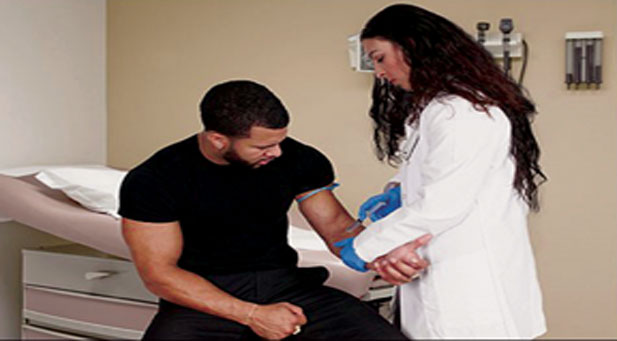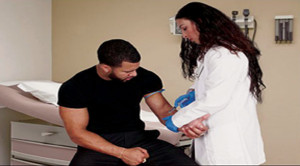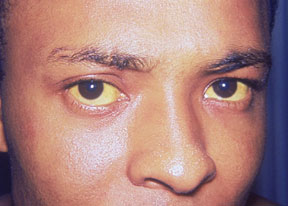
 Four reasons you should be tested for hepatitis C
Four reasons you should be tested for hepatitis C
You may be seeing more commercials and hearing more buzz about hepatitis C. What’s the big deal? The epidemic is five times the size of the HIV epidemic. And recent scientific breakthroughs mean that there is now a cure for this often silent virus.
Contracted through blood or bodily fluids from a person who is infected, the hepatitis C virus (HCV) causes an infection in the liver that may not cause symptoms for years. People at greatest risk include current and past injection drug users; people who received blood products before 1992; those injured by needle sticks, such as healthcare workers; and PLWHA. Veterans and the incarcerated are among those disproportionately affected. HCV is occasionally transmitted via sexual contact, particularly among MSM who engage in high-risk sex, such as not using condoms, whether or not those men are living with HIV or AIDS.
African Americans are also disproportionately affected by HCV. Indeed, 22 percent of those with hepatitis C in the United States are Black. Baby boomers—which the Centers for Disease Control and Prevention identifies as people born be-tween 1945 and 1965 —are also at risk for HCV infection because HCV rates were highest during the ’70s and ’80s, when the blood supply was not screened for hep C. They could have acquired the virus and not known it.
If you fall into one of these categories or are either curious or anxious about whether you have HCV, here are four reasons to take charge of your health:
- Most people who have hepatitis don’t know they have it. Typically, HCV doesn’t cause symptoms for years, so a person infected years ago may not even be aware of it. Meanwhile, the virus has been causing liver damage that could lead to cirrhosis or liver cancer.
- Under the Affordable Care Act, testing and treatments for some demographic groups are free. For example, people born between 1945 and 1965 with health insurance can get the HCV test as one of the preventive health screenings covered under the act. Those who qualify for Medicare Part D may get assistance with coverage for medications through a stand-alone prescription plan or a Medicare Advantage prescription-drug plan. Also, some pharmaceutical companies will help with costs for those who qualify.
- New drugs such as Harvoni, Sovaldi and Viekira Pak not only cure HCV; in clinical trials they have proved equally effective for Blacks and non-Blacks.
- You can get screened once for HCV and then you’re done. Unlike HIV testing, which is suggested every six months, public health experts suggest a one-time screening for baby boomers.
The bottom line is, hepatitis C screening doesn’t have to be a chore on your health-care checklist that you dread. In-stead it can be a task that you can confidently check off once you get tested and know where you stand.
Candace Y.A. Montague is an award-winning freelance health writer and health re-porter for Capital Community News in Washington, D.C.





Be the first to comment